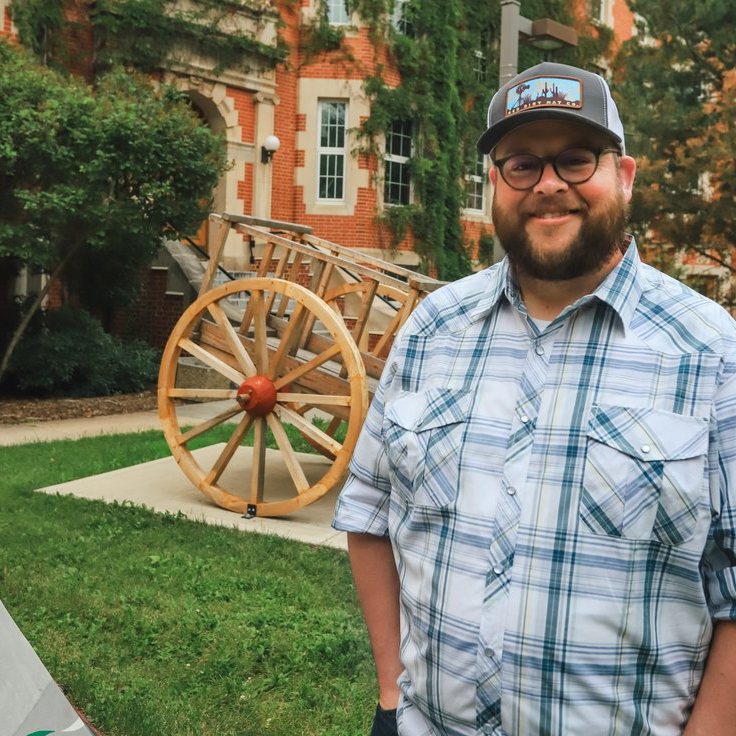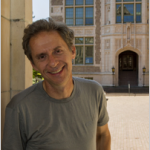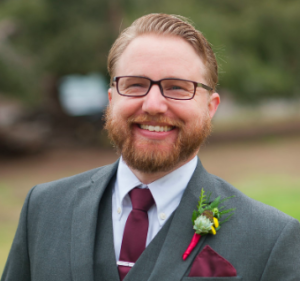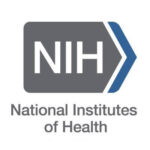 |
CSDE NEWS & EVENTS
December 22, 2023
|
CSDE Seminar Series
|
CSDE Seminar – Settler Love is Breaking our Hearts: Colonialism and Emergent Ecologies of Health on the Western Grassland Prairies
When: Friday, Jan 5, 2024 (12:30-1:30PM)
Where: 360 Parrington Hall and on Zoom (register here)
Join CSDE for a seminar by Dr. Rick Smith on Friday, January 5th in PAR 360 and on Zoom (register here). There will be several opportunities to meet with Dr. Smith throughout the day. Interested individuals can sign up for 1-1 meetings here. CSDE Trainee Delaney Glass will also facilitate a graduate student discussion from 1:30-2:30 in Raitt 221. RSVP to Delaney (dglass1@uw.edu) to join the student discussion.
Dr. Smith is a geneticist and critical science scholar. He is an Assistant Professor of Sociology and Anthropology at George Mason University (GMU). He is also an affiliate of the Women and Gender Studies Program at GMU, The Indigenous Science and Technology Studies Program at The University of Alberta, and SING Canada. Prior to his current appointment as an Assistant Professor, he received his PhD from The University of Texas – Austin and worked as a post-doctoral scholar at the Neukom Institute for Computational Science and the Department of Anthropology at Dartmouth College. His work examines intersections of genomics, feminist, queer and Indigenous science to understand how power becomes molecular. His recent work involves understanding population histories and urban/ruralism, and colonial sex, kinship, and family in the American South.
CSDE will be hosting its regular seminar series on Fridays from 12:30-1:30. Click here to see a pdf of our full winter schedule!
(read more)
|
 |
CSDE Holiday Message
As we near that turn in the academic calendar (between 2023-2024), all of us at CSDE send all of you many best wishes in the New Year! We hope you can find time for rest and recuperation with those most important to you. We also hope for a more peaceful and safer New Year, especially those less privileged!
Next quarter we will look forward to seeing you during our several workshops, working groups, or the seminar series. Feel free to share these opportunities with colleagues and invite them to join. All events are open. We are here to accelerate and support your research. We have a grants team, a scientific consulting team ( spatial analysis, statistics, and more), several lab facilities ( biodemography, UWDC, NWFSRDC), a top-notch computing infrastructure, a network of outstanding CSDE affiliates for collaboration, and very accomplished graduate students - all can help you accomplish your research. If you don’t know where to start, just email: csde@uw.edu.
In winter quarter, the seminar series will welcome Rick Smith (George Mason University) a biocultural anthropologist with expertise in epigenomics; Julianne Meisner (UW Global Health) a CSDE affiliate researching environmental health and the methodological challenges of One Health studies; Rachel Wilbur (WA State Univ.) who researches the health and wellbeing of indigenous peoples and communities; Janna Johnson (U of Minn.) an economic demographer researching demographic dynamics within the United States, both historic and current; Kemi Doll (UW School of Medicine) a CSDE affiliate and an OBGYN who takes a race conscious research approach to understanding women’s health; Yun Zhou (U Mich.) a sociologist who studies gender and family dynamics in China; and, James Raymer (Australia Nat. U.) a demographer researching migration. We will also host two panel discussions including a panel on demographic methods for estimating mortality during armed conflict and a panel on climate impacts on population health. At the end of winter quarter, please join us when trainees will present their research during our Lightning Talks and Posters session. To learn more about our seminar series click here.
In these times, it’s hard to know how to make a difference. This year, UNICEF is in particularly need and I am donating to them. Most of all, we are grateful for all that you do to make a difference in others’ lives and for your support of CSDE! If you are so inclined, CSDE always welcomes donations to support our graduate students or general operations fund. You can click here and type into the search bar “Center for Studies in Demography and Ecology” to see the donation options. Thank you again for being a wonderful community of population research scholars and practitioners.
See you in the New Year!
~ Sara Curran, CSDE Director
(read more)
|
 |
|
|
CSDE Research & Highlights
|
Glass Examines the Meaning of Health for Arab Emerging Adults in the United States
Research by Ellis Finds Hidden Pockets of Poverty and is Featured in The Guardian
CSDE Affiliate Dr. Mark Ellis (Geography) recently co-authored an article in The Geographical Journal, titled “An ethnic group specific deprivation index for measuring neighbourhood inequalities in England and Wales“. Dr. Ellis conducted this study alongside a research team at Queens University Belfast with a grant from the Economic and Social Research Council. The study focuses on the geography of social deprivation in England and Wales, highlighting pockets of deprivation by ethnic group across the two countries, using the 2021 Census. Unlike the US, the UK has no small area income data and so has no direct measure of poverty. The authors' introduce the Ethnic Group Deprivation Index (EGDI) to identify areas of deprivation, using a collection of social indicators including health, education, and employment. Their research finds complex micro geographies of deprivation. While local towns may be perceived as prosperous, with little or no social deprivation overall, there may be small areas (zones of 1500 people) where one or more ethnic groups have very high levels of deprivation. These findings have been featured in two articles by The Guardian - the first article providing an overview of the index and the second article delving deeper into the experience of Oxford, England.
(read more)
|
 |
Theories of Change in Women’s Group Interventions are the Focus of Anderson’s New Research
CSDE Affiliate Dr. Leigh Anderson (Evans School of Public Policy and Governance) released research with co-authors in the Journal of Global Health, titled “Strengthening theories of change in women’s group interventions to improve learning“. Supporting women’s groups is increasingly seen as an important intervention strategy for advancing women’s empowerment, economic outcomes, and family health in low- and middle-income countries. Authors argue that learning from investments in women’s group platforms is often limited by the lack of a well-articulated, evaluable theory of change (ToC) developed by those designing the programmes. They review a portfolio of 46 women's groups investments made by the Bill & Melinda Gates Foundation between 2005 and 2017 to understand the prevalence and clarity of evaluable theories of change, and propose a framework for these theories which they hope will support more learning.
(read more)
|
 |
Harris Highlights the Importance of Laws that Address Legal Monetary Sanctions
CSDE Affiliate Dr. Alexes Harris (Sociology) co-authored an article in the Conversation, discussing the impact of state laws which have removed court costs and fees for people who are unable to pay. Dr. Harris drew on her research and others, which has found that monetary sanctions often do more harm than good. Several states have responded by passing laws to remove or reduce juvenile fines and fees. Read the full article here.
(read more)
|
 |
NPR Quotes Hagopian on the Strategic Role of Attacks on Health Care Facilities and Personnel
CSDE Affiliate Dr. Amy Hagopian (Health Systems and Population Health, Global Health) was quoted by NPR in an article (here) on how 2023 is on track to have the highest number of attacks on health care facilities and health personnel. Dr. Hagopian commented on the threats to health workers in war zones, saying “part of [health workers’] mission is to provide a witness function”. According to Dr. Hagopian, this function is one reason why health professionals can pose a threat to a military or militia. They can "undermine the credibility of the fighting force [and hold] them accountable in ways that legal entities seem not to be able to do," she says.
(read more)
|
 |
Morales quoted on Washington’s Need for Spanish-speaking Medical Staff
CSDE Affiliate Dr. Leo Morales (Social Work, Health Systems and Population Health, Latino Center for Health) was quoted by the Everett Herald on Washington’s state’s shortage of Spanish-speaking nurses. There is a “great scarcity” of Spanish-speaking doctors and nurses across the country, said Dr. Morales, who also elaborated on the complexity that families face when it comes to medical interpreting. Morales discussed why family members and medical staff – who aren’t certified interpreters – who aren’t certified interpreters – should not interpret for safety reasons. Speaking directly with caregivers is more effective at ensuring patients return for follow-up and respond positively to advice. Read the full article here.
(read more)
|
 |
Almquist and Colleagues Develop a Novel Mapping Protocol to Identify Family-based Services
CSDE Trainee Lars Almquist published research with co-authors in Progress in Community Health Partnerships: Research, Education, and Action, titled “A Novel Approach to Geographically Mapping Effective Family-Based Services: Feasibility and Quality Comparison with 2-1-1“. The research was conducted in the UW CoLab for Community and Behavioral Health Policy, as part of work to assist other initiatives. Community social services are often fragmented and difficult to navigate. This presents a barrier to programs, such as health navigation, that focus on connecting individuals to available services. Existing service mapping efforts, such as those generated by 2-1-1, are helpful but limited in the specificity they provide, particularly with regard to whether services are based on evidence-informed principles. This may lead to a distrust of service quality or poor referral match. Authors developed a novel service mapping protocol to identify local, evidence-informed, family-based services, and compared results to 2-1-1’s resource list.
(read more)
|
 |
|
|
Updates from the CSDE Research & Training Cores
|
CSDE Science Core – Upcoming Workshops: Biomarkers, Statistics & R, Online Surveys & REDCap, Accessing Federal Data
|
In the upcoming quarter, CSDE will be hosting four workshops and one ‘lunch and learn’ event to facilitate researchers’ adoption of new methods and data to accelerate research programs. These workshops include an overview of portable biomarker data collection in the field, accessing federal statistical data, developing online surveys using REDCap, conducting statistical analysis with R, and an introduction to data options for research on older adults.
Each quarter, CSDE offers 3-5 workshops on data sources, statistical and biomarker methodology, introductions to analysis programs, and more, all given by CSDE staff and faculty affiliates. These workshops can include hands-on training in novel methods and programming, lectures on innovative data sources, and discussions of important issues in research and data collection. Over the course of the academic year, CSDE will offer a diverse and exciting set of workshops, some of which will be offered in person and others remotely via Zoom. Students, faculty, and staff are all welcome to register for our workshops and we welcome registrants from outside the University of Washington for our remote workshops as well.
You can find our workshop website and register for our Winter 2024 workshops in the links below. We will be filling in our schedule for Spring workshops soon, so stay tuned!
Please reach out to CSDE’s Training Director, Jessica Godwin (jlg0003@uw.edu), if you have additional workshops you would like to see offered in the future and we will do our best to accommodate those requests.
Winter Workshops
(read more)
|
 |
Join CSDE for the Biomarker Working Group Kickoff Meeting!
|
Please join join us for the kickoff of the Biomarker Working Group! We are building a community with diverse expertise, connected by an interest in using biomarkers for population research. This will be a space for learning about and discussing current topics and methods in biomarker research and drawing on our collective knowledge to work through challenges in our own projects.
In this first of monthly meetings, gather with other population researchers using biomarkers and learn about the resources available through CSDE’s Biodemography Lab. Lunch will be provided for those who register here by December 30.
Event Details:
- Date: Thursday, January 4, 2024
- Time: 12:30 – 1:30PM
- Location: Raitt Hall 223
(read more)
|
 |
CSDE Computational Demography Working Group (CDWG) Hosts First Meeting of the Quarter (01/03/2024)
|
On January 3rd from 3:00 – 4:00 pm, the Computational Demography Working Group will hold its first meeting of the Winter quarter. We will briefly introduce the speakers of this quarter and sign up anyone interested in presenting their work. CDWG Will be Hybrid in Winter Quarter 2024. The event will take place in 223 Raitt Hall and on Zoom (register for Zoom here).
(read more)
|
 |
CSDE Population Research Planning Grants (PRPGs) (Rolling deadline)
|
Population Research Planning Grants (PRPGs) are designed to provide in-kind support and/or funds of up to $25k* to support a wide array of activity types throughout the development of a research project. As part of our mission to complement rather than duplicate other campus opportunities such as the Population Health Initiative seed grants, we will consider funding things activities such as:
- Use of CSDE services beyond the standard allotments for affiliates. This could include statistical or computational consultations, administrative and logistical support, computer accounts, software purchases that contribute to the general good, virtual server capacity that contributes to the general good, communication or webinar support, etc.
- Convening a group of scholars for a grant writing retreat or to brainstorm a possible new research collaboration
- Hiring an RA to analyze data for discussion in the Preliminary Data section of a grant application
- Small pilot research, when relationship to future funding requests are clearly laid out. Note that research that is well suited to an existing pilot research mechanism on campus should be submitted to that mechanism, with an optional request of matching support from CSDE (see below).
- Publication-related fees (when no other funding is available). NEW THIS YEAR: requests for publication fees will only be considered for publications that involve at least one CSDE affiliate and at least one CSDE trainee, and which are targeted to a demography-oriented journal or comparable outlet.
- Travel (when specifically enhancing research project development)
- Many others; just ask!
(read more)
|
 |
CSDE Matching Support to Supplement On-campus Funding (Rolling deadline)
|
CSDE Matching Support includes in-kind or monetary support to accompany a submission to other on-campus funding mechanism, such as PHI, EarthLab, or Urban@UW. All projects must have a CSDE affiliate who is UW faculty and is listed as a PI or co-PI, with any number of other collaborators. Note that we require (PRPGs) or strongly suggest (matching funds) contacting either Development Core Director (Steven Goodreau) or CSDE Director (Sara Curran) to discuss possibilities for your specific proposal before submission.
(read more)
|
 |
*New* Issue of Demography
Demography just released it’s newest issue! Read articles here.
(read more)
*New* NIH’s Population Dynamics Branch Provides List of Many Funding Opportunities
|
The Population Dynamics Branch (PDB) within the National Institute of Child Health & Human Development has recently posted a number of active funding announcements. Please check them out and see if they are relevant for your research program. If they are, CSDE is very happy to support you in preparing and considering an application. Our team can help you with providing feedback on your application, providing you with mock review panel, connecting you with a program officer, etc.
See the full web-story for a full list of funding opportunities!
(read more)
|
 |
Apply for the Latinx Scholars Graduate School Fellowship (Due 12/29/23)
|
Applications are now open for the 2023-24 Latinx Scholars Graduate School Fellowship (LSGF). LSGF awards are hosted by the Office of Graduate Student Equity & Excellence (GSEE) (formerly GO-MAP). In 2013, a group of engaged, committed UW faculty, civic, and business leaders joined together to establish the Latinx Scholars Graduate School Fellowship to provide financial assistance to UW graduate students (master’s and doctoral) who have a demonstrated commitment to Latinx communities.
(read more)
|
 |
Call for Applications: National Research Center on Poverty and Economic Mobility Early-Career Mentoring Institute (12/31/23)
|
The University of Wisconsin-Madison’s Institute for Research on Poverty (IRP) and the University of California, Davis’s Center for Poverty & Inequality Research (CPIR) invite applications for the 2024 National Research Center on Poverty and Economic Mobility Early-Career Mentoring Institute (ECMI). This weeklong convening between June 3-7, held in Davis, California, will provide valuable mentoring and career development opportunities to poverty and social mobility scholars who are in the early stages of their research careers and who have the potential for leadership in supporting members of populations that are underrepresented among academic researchers.
(read more)
|
 |
|
|
OPPORTUNITIES
|
Demography Events
Conferences & Calls for Papers
- Call for Applications: National Research Center on Poverty and Economic Mobility Early-Career Mentoring Institute (Occurring 6/3-6/7/24) UC Davis (Deadline: 12/31/2023)
- Call for Papers: Conference on Crimmigration through Time, Space, and Culture (Occurring 3/1-3/2/24) Portland, Oregon (Deadline: 1/5/2024)
- Apply for the Population and Social Data Science Summer Incubator Program at the Max Planck Institute (Occurring 6/3-8/23) Max Planck Institute for Demographic Research, Rostock, Germany (Deadline: 1/10/2024)
- Call for Papers: Time Use Conference 2024 (Occurring June 13-14) University of Maryland and Virtual (Deadline: 1/12/2024)
- *New* Call for Papers: Human Rights in Migration Societies (Occurring Sept. 18-20, 2024) (Due 1/31) Justus Liebig University Giessen, Germany (Deadline: 1/31/2024)
- Call for Abstracts: Data-Intensive Research Conference (Occurring 7/31-8/1/24) Minneapolis and Virtual (Deadline: 2/1/2024)
- Call for abstracts: 2024 Data-Intensive Research Conference (Occurring July 31-Aug 1, 2024) Minneapolis, MN and Virtual (Deadline: 2/1/2024)
- Call for Papers: 2024 Meeting of the American Sociological Association 8/11/2024 Montréal, Québec (Deadline: 2/26/2024)
- Call for Abstracts: The 2024 Add Health Users Conference (Occurring 6/17-6/18/24) University of North Carolina - Chapel Hill (Deadline: 2/29/2024)
- Call for Submissions: IAPHS’s 2024 Fall Conference (Occurring Sept 10-13, 2024) St. Louis, MO (Deadline: 3/10/2024)
- Call for Papers for CARMA 2024: Internet and Big Data in Economics and Social Sciences (Occurring June 26-28, 2024) Valencia, Spain (Deadline: 3/2/2024)
Funding
Employment
- Postdoctoral Researcher within the ERC project ‘CitizenGap – Legal Identity for All?’ University of Amsterdam (Deadline: 12/22/2024)
- Postdoctoral Scholar in Data Science Stanford University (Deadline: 12/22/2023)
- Assistant Professor in Sociology CUNY, Queens College (Deadline: 12/22/2023)
- Post-doctoral Fellow, Gender and Education Initiative Population Council (Deadline: 12/31/2024)
- Data Science Institute Postdoctoral Scholars Program AY2024-25 University of Chicago (Deadline: 1/9/2024)
- *New* Postdoctoral Fellowship in Sociology Indiana University (Deadline: 1/15/2024)
- *New* Postdoctoral Fellowship: Borders & Boundaries in World Politics 2024-2025 1/25/2024 University of Pennsylvania
- Assistant Professor of Migration Toronto Metropolitan University (Deadline: 1/31/2024)
- Postdoctoral Researcher on Refugee Law University of Bologna (Deadline: 1/31/2024)
- Postdoctoral Scholar/Research Associate Department of Population and Public Health Sciences, University of Southern California (Deadline: 3/31/2024)
- Open Rank (Assistant, Associate, or Full) (Open until filled) University of South Carolina
- Data and Evaluation Director for A Way Home Washington (Open until filled) A Way Home Washington
- Assistant Professor, Department of Public Health (Critical Public Health) (Open until filled) San Francisco State University
- Assistant Professor of Sociology of Immigration (Open until filled) Ohio State University, Columbus Campus
- Assistant Professor of Latino Politics/American Government (Open until filled) Montclair State University
- Two Postdoctoral Associates – Sociology (Open until filled) Rice University
- Behavioral Scientist (Program Director) (Open until filled) Behavioral and Cognitive Sciences (SBE/BCS) Division of the NSF
- Research Associate (Rolling deadline) John Hopkins University
- Maternal and Child Health Department Chair and Full Professor (Open until filled) University of North Carolina, Chapel Hill
- Assistant Professor in the Broad Area of Social Genomics, Behavior Genomics and Related Fields (Open until filled) Purdue University
- Research Associate/Senior Research Associate (Open until filled) Miami University
- Postdoctoral fellow position in public health: Position #1 (Open until filled) Rutgers University
- Postdoctoral fellow in public health: Position #2 (Open until filled) Rutgers University
- Postdoctoral Scholar, Racial Disparities in Gynecologic Oncology (Open until filled) University of Washington (Research Lab of CSDE Affiliate Kemi Doll)
|
|
 |
| Center for Studies in Demography and Ecology |
csde@uw.edu
206 Raitt Hall
(206) 616-7743 |
UW Box 353412
Seattle, WA
98195-3412 |
  |
|
|
Is this email not
displaying correctly?
View it online. |
You are receiving this email because of an interest in Center for Studies in Demography and Ecology. To update your profile and subscription status, click here. |
|
|

